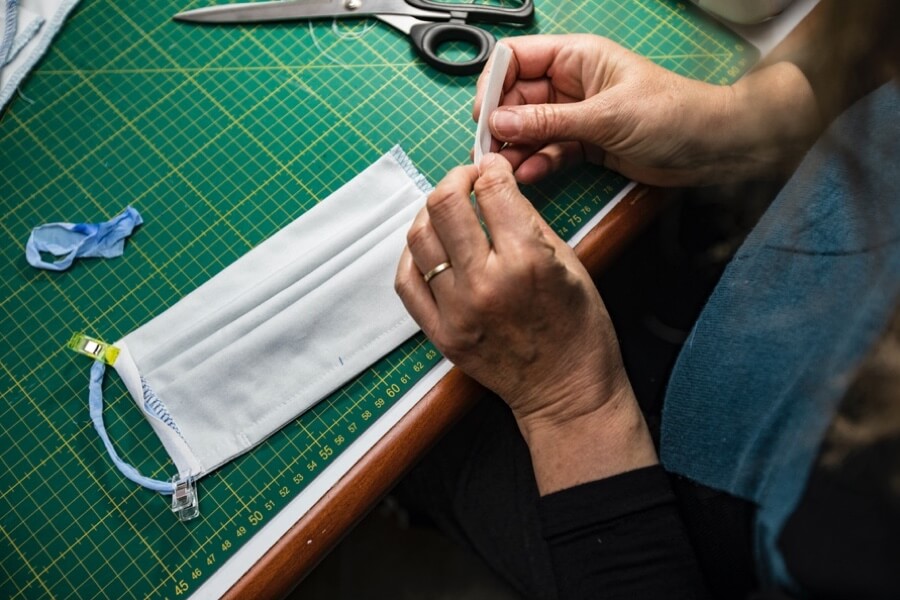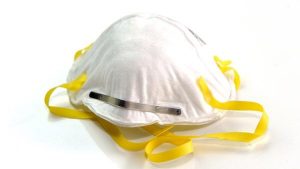Shortages Leave Health Care Workers ‘Dangerously Ill-Equipped’ to Treat COVID-19 Patients
Editors carefully fact-check all Drugwatch content for accuracy and quality.
Drugwatch has a stringent fact-checking process. It starts with our strict sourcing guidelines.
We only gather information from credible sources. This includes peer-reviewed medical journals, reputable media outlets, government reports, court records and interviews with qualified experts.

Doctors, nurses and other health care personnel treating COVID-19 patients are reporting shortages of personal protective equipment, also known as PPE, and ventilators.
“Health care workers rely on personal protective equipment to protect themselves and their patients from being infected and infecting others,” according to the World Health Organization. “But shortages are leaving doctors, nurses and other frontline workers dangerously ill-equipped to care for COVID-19 patients, due to limited access to supplies such as gloves, medical masks, respirators, goggles, face shields, gowns and aprons.”
The U.S. Food and Drug Administration says increased use of gowns and surgical masks may exceed the available supply, resulting in shortages at some health care organizations.
“The FDA recognizes that the need by health care providers and personnel for personal protective equipment (PPE) such as surgical masks and surgical and isolation gowns, may outpace the supply during the Coronavirus Disease 2019 (COVID-19) outbreak,” the agency said on its website. The FDA said it is collaborating with manufacturers of PPE to increase availability of these products.
The Centers for Disease Control and Prevention has recommended wearing cloth face coverings in public settings and has been careful to differentiate cloth face coverings from surgical masks or N95 respirators.
N95 respirators and surgical face masks “are critical supplies that must continue to be reserved for health care workers and other medical first responders,” according to the CDC.
PPE Shortages Makes It Difficult for Medical Providers to Care for Patients

Hospitals said the lack of PPE exposes hospital staff to the virus and worsens staffing shortages and overwork, according to a report from the Office of the Inspector General.
“Hospital administrators also expressed concern that fear and uncertainty were taking an emotional toll on staff, both professionally and personally,” the OIG report said.
While the bulk of the shortages are in hospitals caring for unprecedented numbers of patients, primary care providers are also affected.
Dr. Karla Dick, a family physician in Texas, told Drugwatch that her health care organization has been ramping up its telemedicine practice to see patients and keep exposure to a minimum.
“We have a shortage of PPE as well,” Dick said. “Due to that, we had to shut down our afterhours [and] urgent care clinic temporarily. We are reusing our N95 masks and do not have enough gowns either.”
Manufacturers Increase Production in Response to Ventilator Shortages
Hospitals have also reported shortages of ventilators that help severely ill coronavirus patients breathe.
The Society of Critical Care Medicine reported that a recent American Hospital Association webinar projected that 960,000 COVID-19 patients admitted to the ICU would require ventilatory support.
In response to the shortages, medical device maker Medtronic increased production of its ventilators. On March 30, the company also announced it would share the design specifications of its Puritan Bennett 560 model with other companies to increase global production.
On March 2, the FDA began issuing Emergency Use Authorizations (EUA) that allow manufacturers to repurpose industrial masks for medical staff, according to The Washington Post. Some of these PPE respirators included products from China.
Then, on March 24, the FDA authorized the “use of medical devices, including alternative products used as medical devices” to address ventilator shortages caused by the COVID-19 pandemic. Alternatives include modified anesthesia gas machines and positive pressure breathing devices.
The agency granted Battelle Memorial Institute an EUA to produce its Battelle Decontamination System. The machine vaporizes alcohol and hydrogen peroxide to sanitize single use masks for reuse. It can decontaminate up to 80,000 masks a day.
Other Industries Shift to Make PPE and Ventilators
The shortages have led companies outside the health care industry to manufacture critical supplies.
Automakers GM and Ford have pledged to manufacture ventilators in a move similar to the companies’ World War II warplane building efforts.
Ford plans to produce 50,000 ventilators by the first week of July, and GM pledged up to 200,000.
“Everyone understands the importance of this,” Adrian Price, director of global core engineering for vehicle manufacturing at Ford, told The Washington Post.
Clothing manufacturers including Gap, HanesBrands and Eddie Bauer have started manufacturing masks.